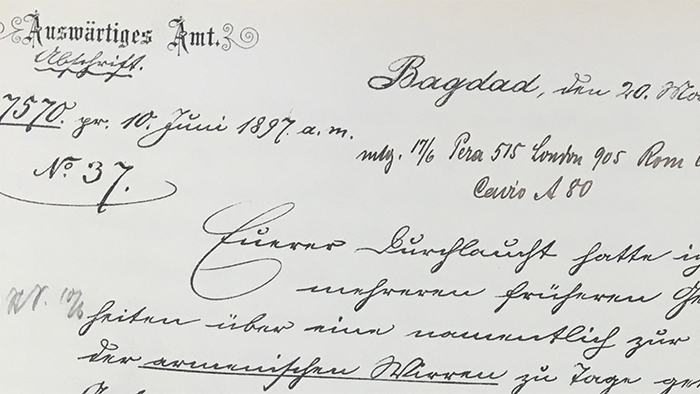In the basement of the former Reichsbank
At the Kurstraße 26, away from the diplomatic hustle and bustle, the memory of the Federal Foreign Office is kept carefully. In safes of the former „Reichsbank“, a considerable amount of 27 kilometers of contracts, documents and files are stored, most of them from 1871 till recent times.
First the history and the building itself were of common interest. In a one-hour guided tour of the underground depots, we saw important original documents of the German and European history and exchanged opinions about the stocks, safekeeping, digitization and restoration of documents.
Time for research projects
In the second part of our visit we focused on the research interest of the participants. Beforehand we got in touch with the archive and after an individual counselling the relevant files were opened for inspection. Most of the participants took part in our seminar entitled “Minorities and Identity policy in the Ottoman Empire and the Turkish Republic” and their main research interest was in that context. The spectrum of research questions ranged from activities of Albanian intellectuals in the late 19th century to Muslim war refugees from the Balkan countries at the dawn of the First World War or to German dropouts, who travelled to and stranded in the Middle East.
Back in Bamberg, the results and challenges of the research in the archive enriched the discussions of the seminar. Besides the variety of the material and the interchange about the unexpected finds, the deciphering of the dynamic running hand, common in the 19th century, were in the center of the efforts. For students used to the handling of Arabic and ottoman handwritings this was a quite new experience still relying on strategies from the field of oriental studies.
Text: Elite Graduate Program "Cultural Studies of the Middle East"


